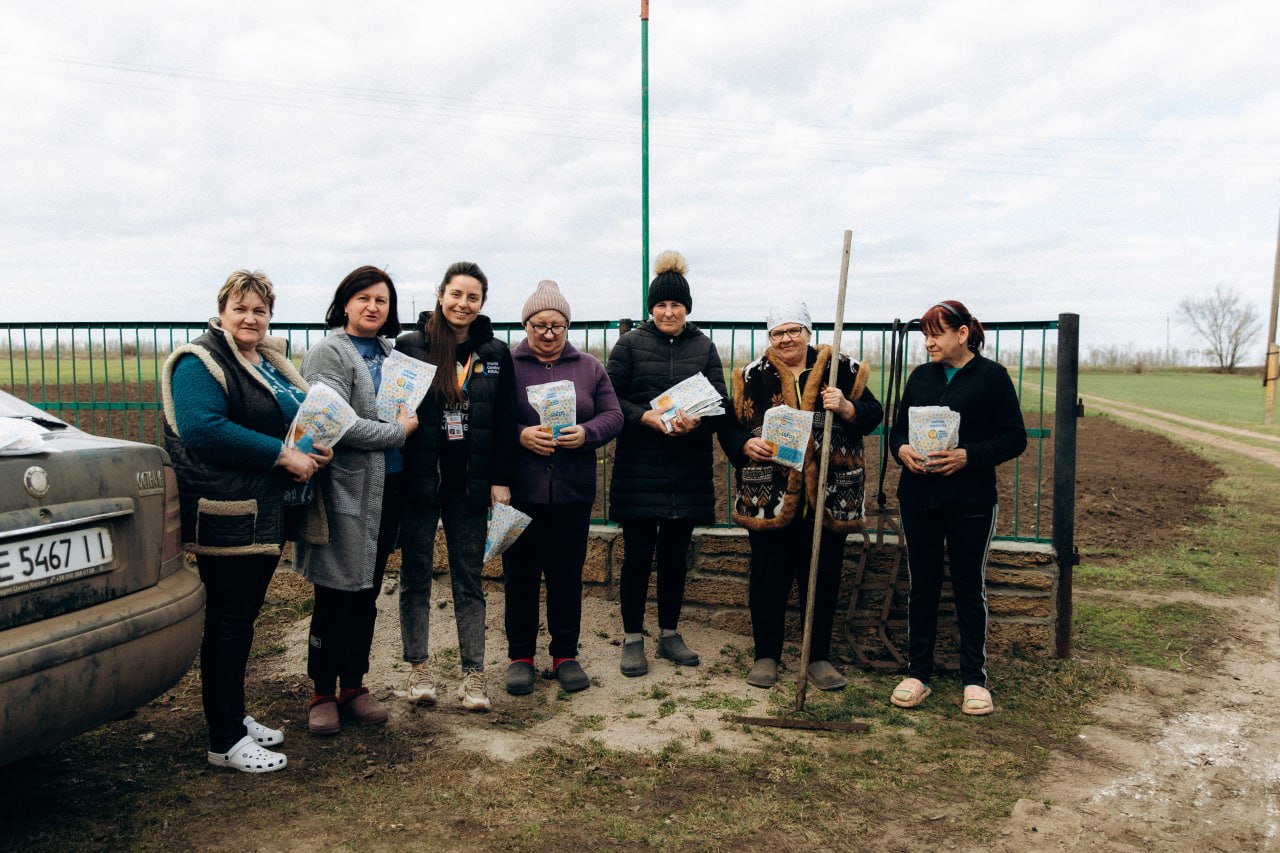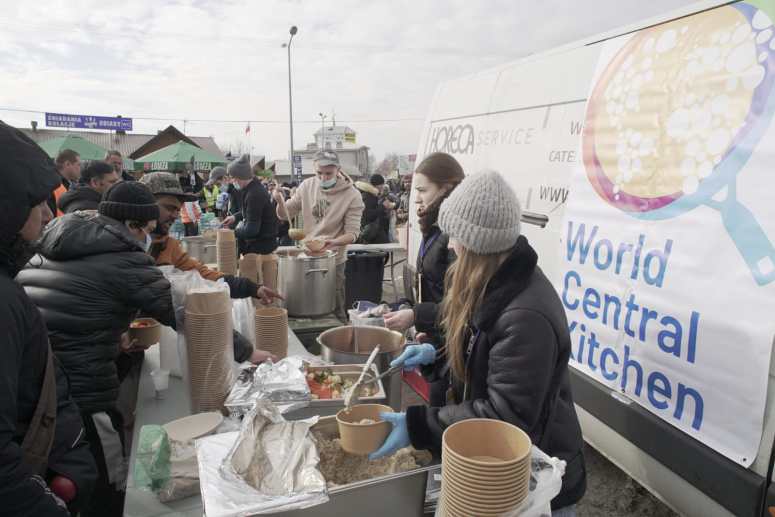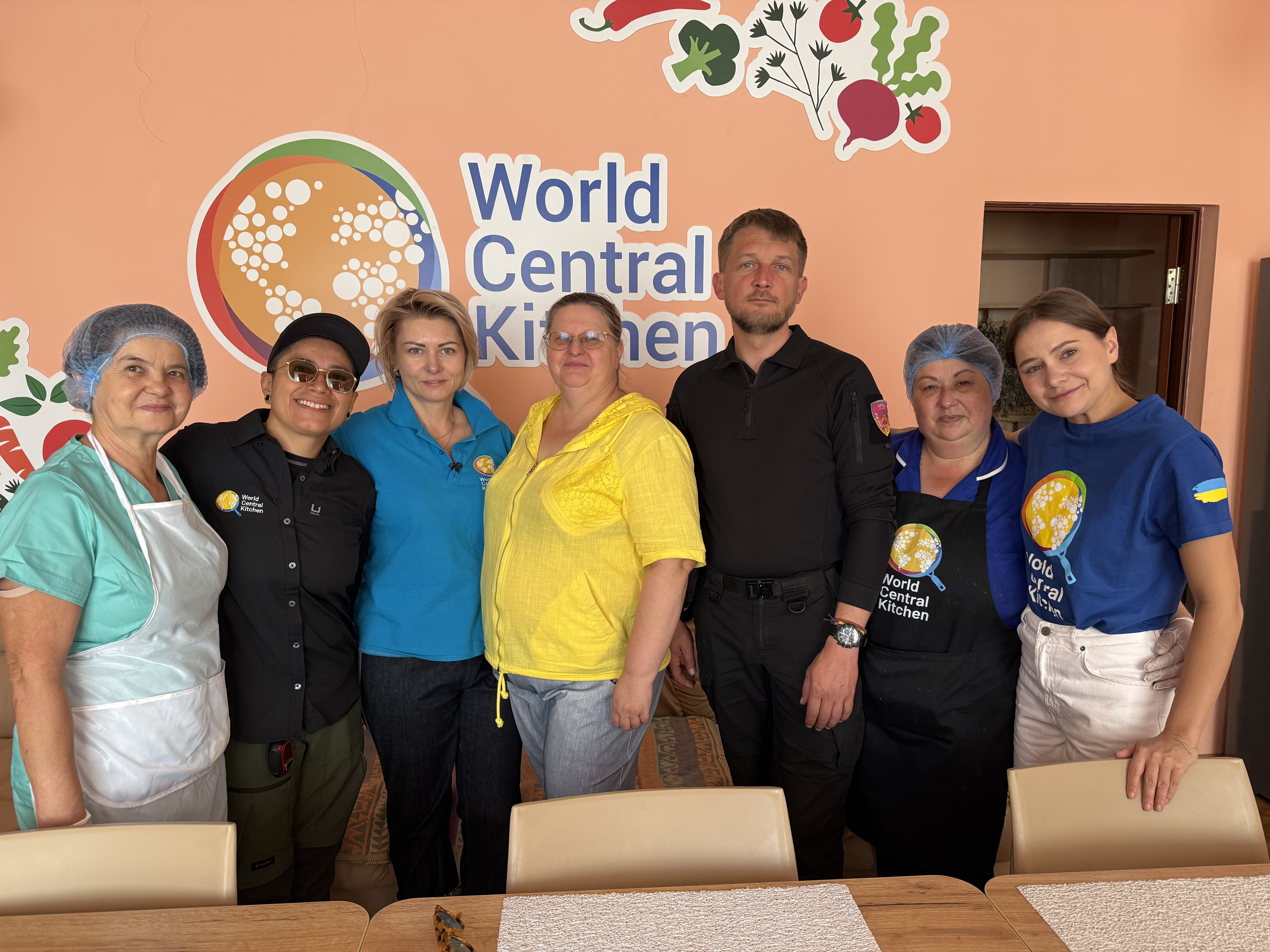How WCK Helped Ukrainians Plant the Seeds of Hope

When WCK founder José Andrés asked the residents of the newly-liberated village of Novopetrivka what they needed most, their answer was unexpected.
“We want to bring back that green, blooming life,” they said.
In February 2023, José visited Ukraine’s Kherson region. The damage from months of occupation was clear—destroyed infrastructure, deserted homes, gardens left untended.
Communities weren’t asking for food or shelter, but for seeds—a way to restore what had been lost and regain some control over daily life. The WCK seed kit strategy was born.
“José turned to me and said, ‘We need to make it happen—fast,’” recalled Yuliya Stefanyuk, who now leads WCK’s mission in Ukraine. “We had just a few weeks left in the planting season, so we mobilized quickly—with partners, local teams, and suppliers.”
Now, WCK’s seed kit approach has evolved from an urgent relief effort into a seasonal staple. Since 2022, we’ve distributed over 258,000 seed kits across Ukraine.
“It’s no longer just about responding to an emergency,” Yuliya explained. “People anticipate these kits. They plan their gardens around them. That trust is incredibly meaningful.”
Growing household food holds a special place in Ukrainian culture. Before the full-scale invasion, more than half of Ukrainian households maintained home gardens. In rural areas, this figure was even higher. 72% of households engaged in agricultural production, relying on their own produce for sustenance.
“People here have always grown food,” said Yuliya. “ There’s strength in planting, nurturing, and watching something grow. It’s a form of self-reliance.”

It’s no longer just about responding to an emergency. People anticipate these kits. They plan their gardens around them. That trust is incredibly meaningful.
Yuliya
WCK Ukraine Response Director
Each WCK seed kit contains a curated selection of 10 vegetable varieties, including cucumbers, beets, carrots, peppers, and tomatoes—crops chosen for their cultural significance and nutrition. WCK’s partner SolUnion supported the program from the beginning—assembling every kit by hand.
“We received a handwritten letter from an elderly woman in Okhtyrka, Sumy region,” said Bohdan, a manager at SolUnion. “She wrote that her pension is very small, and planting is the only way she can manage. Last year she got one of our kits. This year, she asked not to be forgotten.”
The WCK seed program began with a conversation in a damaged village—one that reminded us that restoring food systems isn’t always about what we deliver, but what people can grow for themselves. Three seasons in, it’s become a way for families to nourish themselves and continue traditions rooted in care and resilience.
In Novoselivka, Nina is slowly rebuilding. Her home was destroyed by bombing in 2022. After weeks in a cellar and months of displacement, she and her family returned. Last year, she also received a WCK seed kit.
“I make borscht from the beets and carrots. I plant radishes several times a year. I share what I can with neighbors because we try to support each other.”
Liubov with her 2025 seed kit
73-year-old Liubov has spent her entire life in the village of Taras Shevchenko. This is the third year Liubov has planted a garden using seeds from WCK. In 2023, a prolonged drought withered much of her crop.
“The sun was merciless; a lot of things dried up,” she remembered. “But the most important thing is that we still have something to plant. That gives us hope.”
Support our efforts in Ukraine









